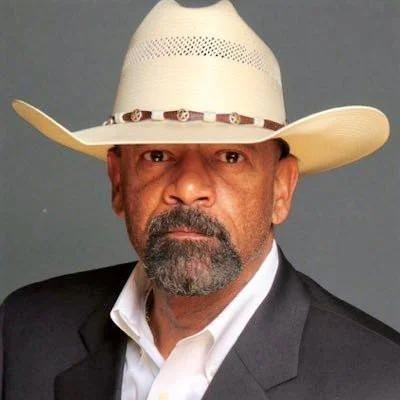Baltimore: Is the handwriting on the wall?
/By: Joel E. Gordon
“Baltimore leadership ... you took the city down this path. You chased after a consent decree handcuffing your own cops, while turning the city over to criminals,” - Anthony Barksdale tweet (November 2017)
Does being a loud critic of current policy, even when you have a previous track record of real successes, pay off in the end in today's “progressive” “'cancel culture” world? If you answered “no way” Anthony Barksdale might be the one to prove you wrong. In a somewhat surprising turn of events, Barksdale, a native of West Baltimore, was appointed as the city's next deputy mayor for public safety by Baltimore Mayor Brandon Scott effective July 11, 2022. As deputy mayor for public safety, Barksdale will oversee the policies and operations of the city's public safety agencies -- BPD, the Mayor's Office of Neighborhood Safety and Engagement and the Baltimore City Fire Department, including the Office of Emergency Management -- and the implementation of the city's consent decree.
Barksdale was part of Commissioner Ed Norris’ security detail and has said he learned about the fundamentals of policing from Jack Maple, the New York police officer who created that city’s Compstat data analysis program. Promoted through the ranks, Barksdale has years of law enforcement expertise and a deep knowledge of the city, having served as deputy commissioner of operations and, later, as interim police commissioner.
Barksdale ran operations for the Police Department from 2007-2012, a period during which the city saw reductions in gun violence, including fewer than 200 homicides, emphasizing accountability from commanders related to crime in their districts. Not without critics, some say that was achieved through a heavy-handed approach and aggressive policing. Now Barksdale will be current Commissioner Harrison’s boss. Are Harrison’s remaining days in Baltimore numbered?
In 2020, Barksdale was interviewed by Fox45-TV and said he had “no faith” in Harrison. Asked why, he said: “I’m looking at the data.”
“I see a continued failure by executive command, the commissioner and his top team, to understand how to fight violent crime,” Barksdale also said in 2020 during a WBAL Radio interview. “They’re missing deployments, across the city of Baltimore, over and over again.”
“Commissioner Harrison and his Kentucky Deputy of Operations [former Louisville Police Deputy Chief Michael Sullivan, who is now overseeing the BPD’s consent decree compliance bureau] are leaving citizens and officers vulnerable,” he tweeted in 2020, referring to orders Harrison issued early in the pandemic. “Absolutely idiotic and reason to remove him and his entire team!”
In September 2018, Barksdale tweeted: “Things were supposed to get better under the consent decree, right? Wrong!” In an Op-Ed in February 2021, Barksdale said more needs to be done to protect Black communities experiencing violence.
“The vast majority of victims of violence in Baltimore and other cities are Black and Brown children, women, and men,” he wrote. “While I understand the sentiment behind those who wish to move away from policing, we need to maintain focus on the suffering, and loss happening right now in these neighborhoods. Police play a vital role in protecting the vulnerable within them.”
He continued: “I believe in using data to make crime-fighting decisions. The data is screaming for more to be done across the United States to keep Black and brown communities safe. We must have the courage to confront the daily violence Black and brown citizens are facing with targeted and proactive engagement against the shooters and killers. We cannot afford to wait, we must turn this around.”
During a news conference to announce his appointment, Barksdale addressed his past remarks. “While I’m here, while I’m speaking, I owe someone an apology for past statements,” he said. “I’m man enough to say, ‘I’m sorry Commissioner Harrison if I said anything in the past that is offensive to you. I want to work with you. I know we are going to work great together.’”
“I can work with anyone,” Harrison said. “I have been given strict assurances by the mayor that the deputy mayor is here to support. ... I alone am the commissioner. I alone make the day-to-day decisions for the Baltimore Police Department. The mayor has given me strict assurances that will be my job.”
Mayor Scott said that hiring Barksdale was not a decision that he came to lightly, but which he made because, “He is someone that I believe in and someone that I know and trust, who has a heart for Baltimore and wants it to be the safest city it can be.”
The mayor said his office spent months searching for the right person for the job. “I wanted it to be someone with a proven track record on public safety and with a deep knowledge in our city.” Something that Police Executive Research Forum endorsed and former New Orleans Louisiana Police Chief Michael Harrison is not. Stay tuned for future developments.
Joel E. Gordon is a former Field Training Officer with the Baltimore City Police Department and is a past Chief of Police for the city of Kingwood, West Virginia. He has also served as vice-chair of a multi-jurisdictional regional narcotics task force. An award winning journalist, he is author of the book Still Seeking Justice: One Officer's Story and founded the Facebook group Police Authors Seeking Justice. Look him up at stillseekingjustice.com





































































